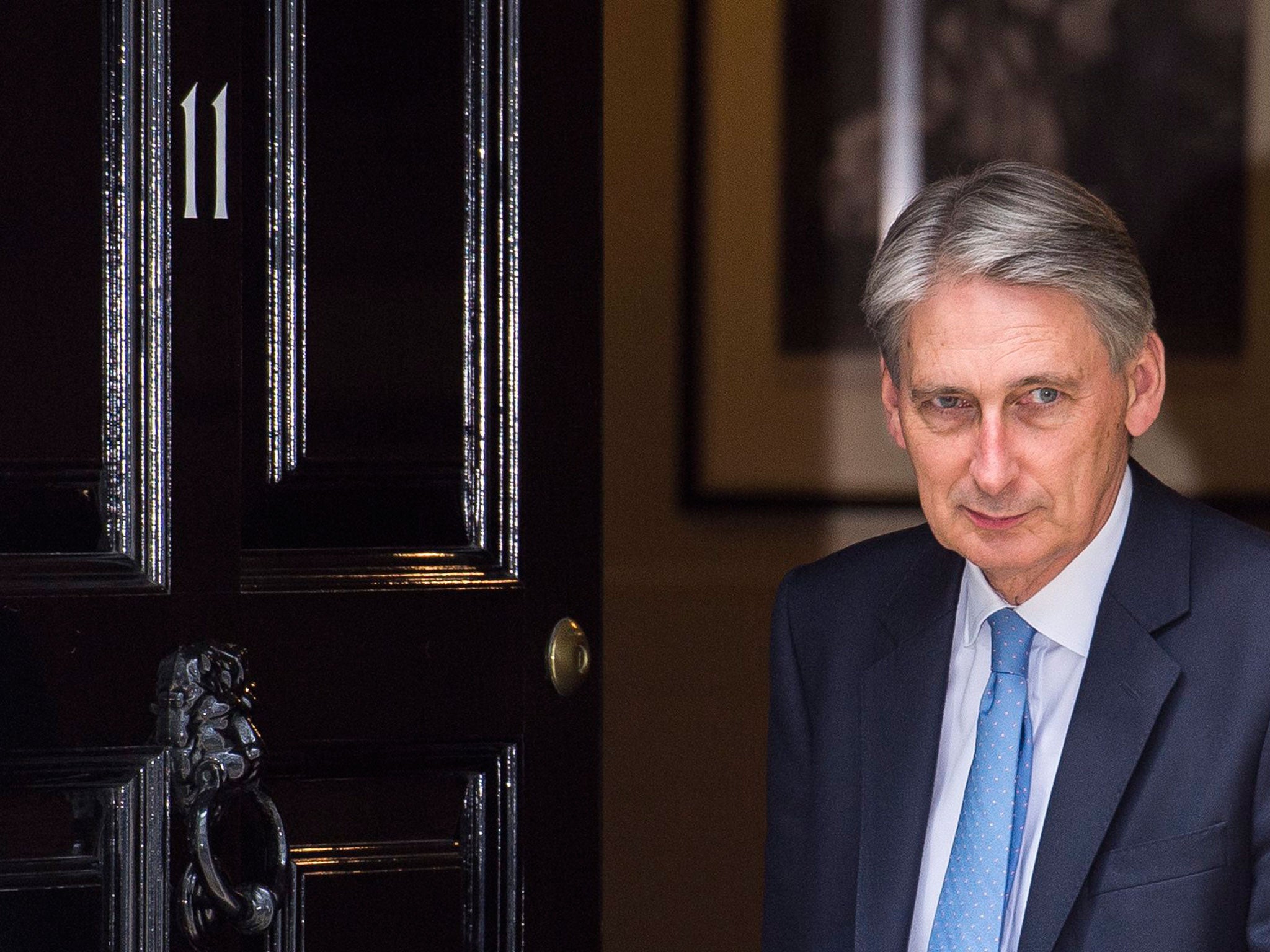Philip Hammond says Brexit will cast a two-year 'shadow' over the world economy
Chancellor says uncertainty will continue till Britain leaves the EU but their options are still 'wide'

Your support helps us to tell the story
From reproductive rights to climate change to Big Tech, The Independent is on the ground when the story is developing. Whether it's investigating the financials of Elon Musk's pro-Trump PAC or producing our latest documentary, 'The A Word', which shines a light on the American women fighting for reproductive rights, we know how important it is to parse out the facts from the messaging.
At such a critical moment in US history, we need reporters on the ground. Your donation allows us to keep sending journalists to speak to both sides of the story.
The Independent is trusted by Americans across the entire political spectrum. And unlike many other quality news outlets, we choose not to lock Americans out of our reporting and analysis with paywalls. We believe quality journalism should be available to everyone, paid for by those who can afford it.
Your support makes all the difference.Philip Hammond has said Brexit will “cast a shadow” over the world economy for at least two years in an interview following the G20 summit in Beijing.
The Chancellor said the turmoil in the markets and signs that the economy is struggling following the vote to leave the European Union in last month’s referendum were to be expected.
In the interview with Sky News he said: “It was a shock to the economic system, it was not something markets or businesses were expecting so obviously there was going to be a reaction or a response to that.
“And because there will now be a fairly lengthy negotiating period there is going to be uncertainty about the outcome hanging over the world economic outlook for the next few years”.
He said Brexit was “one of many shadows” hanging over the global economy which the world’s economic leaders needed to deal with.

Mr Hammond also refused to rule out the prospect of joining the Trans-Pacific Partnership (TPP) - which non-Pacific countries could theoretically join in some capacity subject to member countries’ approval - or a bilateral trade with the Chinese which is rumoured to have been discussed at the meeting.
The TPP deal was signed in secret last year between 12 Pacific countries, including the US, with many fearing it could led to increased drug costs, decreased food safety and job losses as free trade means employers may be able to move production overseas.
Mr Hammond said: “Our options are very wide at the moment, we know that we can’t legally enter into any new trade agreements until the point when he exit the European Union which could be two, two and a half years down the line.
“We’ve got time to look at the options and to negotiate agreements”.
Whatever happens, we will need “to engage with the rest of the world even more strongly”, he said.
The meeting of the world’s top 20 economies in China was dominated by talk about the fallout of Brexit which has caused chaos on the international markets.
The 20 finance ministers, including Mr Hammond, pledged to try to boost economic growth and confront protectionism in the wake of the vote.
In a joint communique sent by the financial leaders, they said: “Members of the G20 are well positioned to proactively address the potential economic and financial consequences stemming from the UK referendum. In the future, we hope to see t
Join our commenting forum
Join thought-provoking conversations, follow other Independent readers and see their replies
Comments